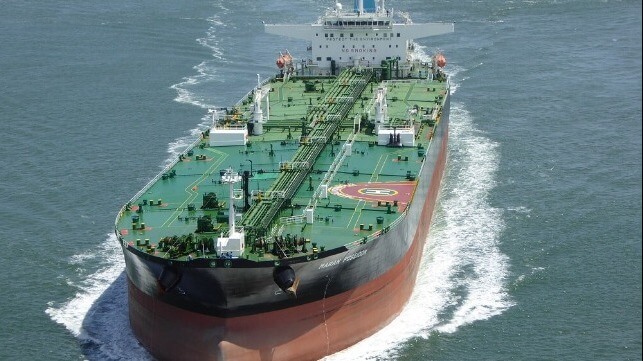Inmarsat: Secrecy and Siloed Data Slow Down Progress on Maritime Safety

In its annual safety report, satcom provider Inmarsat says that the number of distress calls from seagoing ships remains stubbornly high - even if other metrics may point to improvements.
Even as fleet size has increased, merchant vessel losses have declined by 65 percent over the past decade, signaling a vast improvement in the ultimate measure of safety at sea. But lower-grade casualties continue, and Inmarsat said that its GMDSS service handled more than 850 distress calls over the course of 2022 - about seven percent higher than the numbers for 2021, and about five percent above the four-year average.
In its 2023 report, Inmarsat's safety team sought to get at the root of the persistent frequency of distress situations. They looked at industry data and conducted three focus-group sessions to build a picture of safety in shipping and barriers to improvement. The results: machinery damage leads the way in casualty incidents, followed by collision, fire/explosion and grounding.
Tankers, rigs and gas carriers led the way by distress frequency, posting calls at a rate of roughly one percent of the fleet per year. Tankers made the most distress calls overall in 2022, as they have for the past five years, but Inmarsat's partners suggested that the elevated rate could be due to a proactive safety reporting culture in the tanking sector.
The biggest challenge to safety improvement going forward: "haphazard" data collection and limited sharing by operators who fear losing a competitive advantage.

that matters most
Get the latest maritime news delivered to your inbox daily.
"We are not sharing and harnessing data at an industry level. I fear that one reason for this is that many have simply become inured to marine casualties and incidents, and have developed a tolerance to repeatable but preventable errors that ultimately cost or irrevocably change lives," said Inmarsat's Peter Broadhurst. "This status quo is unacceptable, and we need to radically change the way we utilise data to optimise safety. We must work collectively to identify how best to gather, analyse, classify, anonymise, and share safety-related data."
Other persistent issues include an “inadequate top-down safety culture," over-emphasis on human error rather than ISO human-performance standards, poor conditions for seafarers, and the perception of safety as a tick-box exercise.
To help resolve these long-term challenges, Inmarsat proposes to create a standardized international marine casualty and incident dataset. The report recommends creating a common standard for casualty reports and anonymizing casualty data to assuage the commercial concerns of vessel operators.
“We have the data but need to find ways to harmonise its collation and employment to tackle safety deficiencies head-on,” said Broadhurst. “In this way, we can better protect seafarers, vessels and the environment and ensure that safety keeps pace with other aspects of a sustainable transition."
